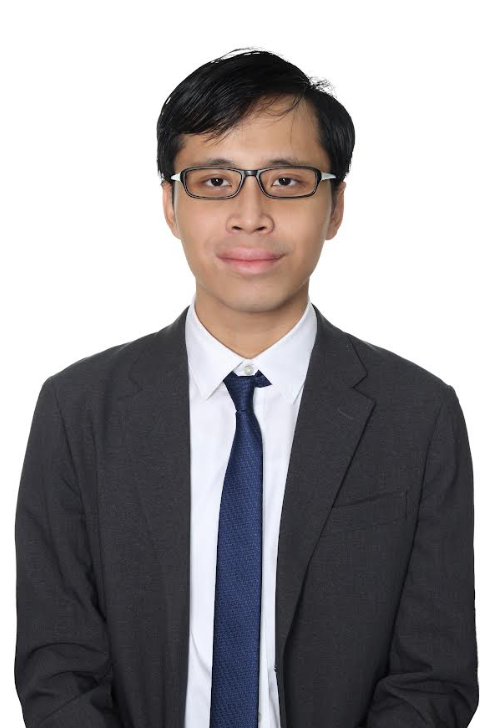My Journey From Quiet Researcher to Islamic Financial Consultant
Section 1: A Quiet Start
If you told the 22-year-old me that I would eventually come to do financial advisory work, let alone sales, I would probably call you crazy. I was known among my peers as the quiet one, the most socially anxious in the group. Small talk drained me, and I would go to great lengths to avoid being in the spotlight. During a university business competition, I took charge of all the research and content while delegating my teammates to handle the presentation. We ended up impressing the judges and taking second place in that competition. The point is that I had mistakenly internalised this fear of social interactions and judgement in my identity, as if it were an immutable trait. Just imagine yourself, you feel nervous, awkward, or tense in social settings. But instead of working on it, you tell yourself:
“I’m just socially awkward.”
“I don’t do well with people.”
“That’s just how I am.”
Section 2: Breaking the Mold
This was basically my self-handicap mentality for a long time as a student, since primary school, regarding social interactions. Looking back, I suspect part of it stemmed from a subtle form of ego I had not fully recognised. When you often receive praise for being “smart” or “capable”, you might come to fear trying something new (like socialising), because failure threatens the identity you have built. Over time, I erroneously bought into this false dichotomy that people are either analytical or social by nature, never both. And so instead of working on what I struggled with, I rationalised it. Telling myself that I am just better behind the scenes or worse “Maybe I am too intelligent to care about socialising.” This isn’t just a personal struggle. It mirrors a broader trend in Singapore, where, despite being paraded as the melting pot of diverse cultures, monolingualism in English rapidly grows among the newer generations, while our general proficiency in our mother tongues continues to deteriorate. Instead of confronting the problem directly, we find comfort telling ourselves that distancing from our ethnic roots and embracing English fluency is simply a natural part of upward mobility. But comfort rarely produces growth.
So what changed? What nudged me to dip my toe in refining my communication and presentation skills, which, in turn, provided me the confidence to enter into a career I never imagine?
Section 3: A Gradual Realisation
Well, for certain, it cannot be reduced to one defining moment but rather a gradual process of events.
CNA released an eye-opening survey on the population of Singapore, asking for their views on the key drivers of social mobility. In contrast to the lower-class Singaporeans who believed that hard work and education are the primary drivers of social mobility, higher-class Singaporeans believed that it was their networks and connections that were the primary drivers of social mobility. This stark contrast struck a chord with me. It made me realise how much I had underestimated the power of human connection. I had spent so much of my youth investing in books, grades, and technical know-how—but little effort went into building relationships or understanding people. I began to reflect: perhaps the very thing I avoided—social interaction—was not only a missing piece in my personal growth but also a vital ingredient for upward mobility, especially in a country like Singapore.
Around the same time, my business professor, whom I have great respect for, shared a piece of advice that stayed with me. He encouraged the class he was lecturing to try sales for once in their lives. Sceptical, I retorted that most of us were introverts who would probably perform poorly in sales. I also raised my concern about the negative connotations associated with such a role—being pushy and manipulative. His reply was simple yet profound. He said that virtually every human interaction is a sort of sales—from creating new friendships, acing a job interview, going on dates, pitching an idea, and negotiating your salary with your employer. Hence, the skills we gain from such a profession will remain instrumental throughout our lives.
Of course, it was not the only influence. Reading books like The Woke Salaryman Book: Crash Course on Capitalism & Money and revisiting the history of economic thought gave me a keener insight into the systems we live in. I then became fascinated by the accounts of self-made millionaires who navigated capitalism and made risky decisions to transition to entrepreneurship.
Section 4: With Privilege Comes Responsibility
But is attaining wealth my ultimate goal in life? Is my decision to join the financial advisory industry purely motivated by personal gain?
Not quite.
In fact, before considering becoming a financial consultant, I had different aspirations entirely. I initially envisioned a future in academia, perhaps as an economist or researcher. Inspired by the writings of the preeminent Nobel Prize-winning development economist Daron Acemoglu, I wanted to dedicate my life to learning the structural causes of poverty and inequality in the world and eventually influence real-world change by advocating for policies that support those less fortunate. As the world has become more uncertain and perilous, I began to ponder deeply on my context as a Muslim from a low-to-middle-income family raised in Singapore. Compared to many Muslims in developing countries, I was blessed with access to clean water, quality healthcare, safety, a world-class education system, and a supportive infrastructure that allows people like me to pursue careers to achieve their dreams.
Even within the Muslim world, many face daily struggles—be it war, famine, displacement, or institutional neglect. From Gaza to parts of Africa, South Asia to Central Asia, millions of Muslims live under systems that fail to provide even basic economic rights and dignity. And even when they flee to supposedly better places, like refugees or working-class immigrants in the West, they face xenophobia, legal barriers, or cultural alienation.
Then there’s us—Muslims in Singapore. We have mosques in every neighbourhood, access to Islamic education, halal food at every corner, and religious freedom protected by law. We are part of a society where upward mobility is possible, where many in the Malay-Muslim community have achieved academic and professional success. We are, in many ways, in a unique position of privilege with respect to the global Ummah.
And with that privilege comes responsibility.
Section 5: Balancing Idealism with Pragmatism
Being ambitious simply is not enough for me. How can I, in good conscience, take full advantage of everything I have been blessed with, all for enriching myself alone, while children starve, bereft of opportunity, education, or even a sense of safety? How can I chase personal success without ever considering those who, by no fault of their own, were born into circumstances where hope feels like a distant dream? Beyond my personal ambitions, I carry a vision for the future. Ambition is about achieving what you want for yourself. Vision is about striving for a better world. To be visionary is to ask: If I didn’t exist, would the world be worse off? That is the standard I hold myself to.
And yet, I often ask myself—what do I really know? I am just fresh out of university. Maybe I am being too idealistic and naive. Maybe this is another comforting lie to cope with the bitter reality that I am too insignificant in the grand scheme of things. Some friends with more life experience say it’s better to be realistic, even cynical.
But even if I’m wrong, I take solace in the fact that what truly matters in this dunya is not the outcome, but the effort.
Anas ibn Malik reported: The Messenger of Allah, peace and blessings be upon him, said, “Even if the Resurrection were established upon one of you while he has in his hand a sapling, let him plant it.”
This is precisely why it is important to balance idealism with pragmatism. And ultimately, it was this balance that determined my career choice. I became a financial consultant instead of an academic not because I had abandoned my vision, but because I saw more potential for growth. In the preface chapter of The Woke Salaryman Book: Crash Course on Capitalism & Money, the authors mentioned something I can never forget. They described the world as broken and unjust. To create change, they argued, you often have to first gain power in the form of resources. You have to build your own stability and earn the freedom to act with agency. You may even have to get rich first—not for indulgence, but for impact. For legacy. For change.
Choosing to be an Islamic financial consultant rather than a policy advisor may feel like passing out umbrellas in a hurricane—when what I truly want is to build a dam. But I have also come to recognise that the academic career route is less likely to achieve my vision for a better society and world. For one. I am not a genius. I am not an Acemoglu or the next Adam Smith. I just happen to be deeply passionate about economics and the financial markets. I am not too keen on chasing research grants. I have many innovative ideas yes, but how many of those theoretical ideas leave the ivory tower of academia and actually help everyday citizens? I didn’t want to just study poverty and critique society, I want to respond to it now.
Section 6: Inspired by Imam Abu Hanifa
In choosing how to respond, I found inspiration in the life of Imam Abu Hanifa (ra). Before becoming one of the greatest scholars in Islamic history, he was a successful entrepreneur, a humble textile merchant who achieved financial independence long before his name echoed through the halls of jurisprudence. Abu Hanifa was a paragon of virtue, perhaps best exemplified by the following account: A woman once approached him to sell a piece of silk. She quoted a price, and Imam Abu Hanifa, knowing it was worth more, insisted on raising the price himself. Unsure whether he was mocking her, she hesitated—only for him to call another merchant to confirm the higher value and pay her fairly. It was a moment of quiet integrity, where character and commerce were never in conflict.
To me, that’s the gold standard: combining commerce with conscience. Whether you’re starting your career, providing for a growing family, or planning your retirement, you deserve guidance that respects both your dunya and akhirah. If you’re looking for someone who understands your faith, your values, and your financial goals—I would be honoured to walk this journey with you.
Important: The information and opinions in this article are for general information purposes only. They should not be relied on as professional financial advice. Readers should seek unbiased financial advice that is customised to their specific financial objectives, situations & needs. This advertisement or publication has not been reviewed by the Monetary Authority of Singapore.

Published By:
Muhammad Amsyar Bin Minhaj
Assalamu’alaikum, I’m Muhammad Amsyar—an Islamic financial consultant passionate about helping Muslims grow, protect, and pass on their wealth in a way that’s fully aligned with their faith.
Whether you’re investing halal, planning for Hajj, protecting your family, or preparing your estate the Shariah way, I’m here to simplify the process and guide you with clarity and care.
Though young, I bring a strong foundation in economics and real-world experience as a former research assistant. I left the path of academia to serve my community more directly—combining analytical insight with faith-based financial solutions that empower Muslims to achieve financial independence, the halal way.
You can hear more about my story here.

CONTACT US
- 150 Beach Road #12-01/08, Gateway West Singapore 189720
- +65 62221889
- +65 62221019
- feedback@fa.com.sg
